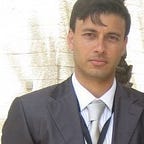Entrepreneurship, counter-terrorism and ending child slavery
Last weekend, I attended the TIE Conference where over 4,000 people gathered to get an annual intravenous knowledge infusion about entrepreneurship. I was there because NewzSocial powered the social media large screen for the conference and amplified content about the conference through scores of social media ambassadors. I was impressed by how the organizers of this conference took a much broader view of entrepreneurship than just the stereotypical “starting a small business in a garage”, and instead looked at the entrepreneurial mindset which is applicable across many broad domains. Two keynote speakers that really stood out for me in this regard were Brian Michael Jenkins, who has spent his career at RAND corporation working on counter-terrorism, and Kailash Satyarthi, who won the Nobel Peace prize in 2014 for his work in preventing child-slavery.
Brian Michael Jenkins gave an excellent talk about the history of terrorism and counter-terrorism since the early 1970s to the present, and outlined potential scenarios for the future. A summary of some of his key points can be found in this interview in the LA Times. The bottom line of his talk to me was the phrase: “terrorism is theatre”, that it intends to manipulate perceptions and change a group of people to abandon their values because of fear. Although Brian didn’t make this analogy, his point reminded me of “The Joker” in the Batman movie Dark Knight: anyone who has seen the movie knows exactly what I’m talking about. Thus, paradoxically in a conference that seemed to be mostly about new technology and the future, it became apparent that the deeper underlying key to so many of the problems we currently face lies in values and virtues that go back beyond the dawn of recorded history. Brian Michael Jenkins gave the examples of courage and resilience, that the same courage and resilience that is needed to start a new venture or to raise a child is also needed to keep a society together and prevent walls from going up and groups of people turning against each other because of fear. These questions have become hot buttons in the United States this year with the elections; Brian’s presentation made it clear that these are not just loosey goosey “feel good” questions, but actually cut to the core of what the fight against terrorism and the survival of a civilization is about.
This same value of courage, fed by remarkable amounts of compassion, was evident in the story told by Kailash Satyarthi who described how he first became involved in his life’s calling of fighting child-slavery. He described how a poor father in India, whose daughter was just about to be sold into prostitution, fled in the back of a truck full of bricks and sought him out because of a magazine about children that Kailash had published. When the father asked Kailash for any help he could give, he decided in his mind to treat this man’s daughter as though she was his own daughter, and he would do anything he could to rescue her. He arranged with some of his friends to go and fight (literally) with those who were to sell the girl into prostitution, and while he and his friends ended up being physically beaten up, they were able to free the young girl. From that moment onwards, he made it his life mission to work towards ending child-slavery. His work brought him close to death many times, a risk he has accepted to bear for the noble cause he is fighting for.
My colleague Thien Tran with Kailash Satyarthi
As Kailash was citing some of the staggeringly saddening statistics relating to child-slavery, I couldn’t help but remember the talk earlier in the day given by Brian. While terrorism is constantly in the media spotlight because of atrocities against hundreds every year, child-slavery is very rarely covered by the media, and yet it completely devastates the lives of many millions. According to the site walkfree.org, some 35.8 million people are currently enslaved, of which 1 in 3 is a child. In addition, there is the related issue of child labor and child soldiers, where children miss the chance to have a childhood and an education. Currently, more than 200 million children are child laborers, with an estimated 120 million engaged in hazardous work and 73 million below the age of 10. Over 300,000 children are engaged in armed conflicts.
Kailash coming to Sillicon Valley to speak at a conference of entrepreneurs allowed him to “tell the rich of the midnight sighing of the poor” and challenge everyone to feel personally connected to a problem that many are not conscious of. He brought his talk, and the conference, to a close with with a profound plea. After working with so many children, many of whom have been deprived of their “childhood”, he asked the audience to be attentive to the inner child that is within everyone, an inner child that adulthood can stifle over time. The qualities of curiosity, creativity, compassion, joy, warmth and many others that we instantly recognize in children are also crucial to continually reconnect with as adults. They are qualities that are essential for entrepreneurship, for a civilization to stay intact and defeat terrorism, and to take actions that would enable millions of children to have their precious childhood. Kailash’s plea to “never lose the inner child that is inside all of us” is one that I will remember for a long time to come.
